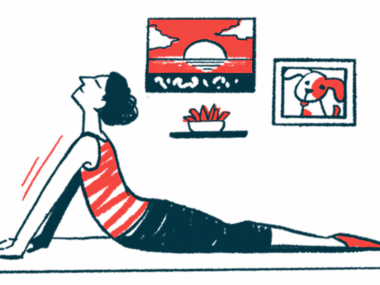Workplace Dress Codes Can Limit Opportunities for People with Disabilities, Researchers Say
Written by |

Researchers at the University of Missouri found that a lack of appropriate clothing designed for people with disabilities, caused by accidents or chronic diseases like multiple sclerosis (MS), can be a barrier to participation and a sense of inclusion in the workplace.
Because workplace attire can be specific and and offer few options for employees who don’t fit “normal” body types, disabled workers can feel themselves at a disadvantage. Such limitations can affect their integration in the workplace, their sense of self-confidence, and increase their feelings of a stigma around their disability, the researchers said in a press release.
“People with disabilities are no different than any other consumer looking for clothing,” Kerri McBee Black, a university instructor and doctoral candidate in textile and apparel management, said in the release. “Consumers want clothing that expresses their sense of style. They want clothing that makes them feel confident. Unfortunately, the apparel industry has yet to sufficiently meet the demand for this population.”
McBee Black, together with an associate professor at Missouri, Jung Ha-Brookshire, interviewed people with disabilities who had sought or were seeking employment to identify barriers faced in the workplace.
The team found that the lack of appropriate attire, regardless of the disability, was a common theme across the interviews.
One multiple sclerosis patient told the researchers that she searched for adaptive clothing that would accommodate her colostomy bag. She struggled to find options that made her feel attractive, and that lack of choices impacted her overall confidence.
Other participants reported similar challenges in finding work-appropriate clothing. In fact, the two researchers reported that people with disabilities often choose not to apply for certain jobs because they felt they cannot meet the expectations associated with the office dress code.
“Throughout the interviews we heard from participants that people living with disabilities want to work; yet, they experience public and self-stigma, both of which undermine their confidence,” McBee Black said.
Finding adaptive clothing isn’t easy. But an online search by Multiple Sclerosis News Today did find a few companies designing adaptive clothing lines and products that might help people living with disabilities. We cannot and do not recommend these lines, we simply note that they exist.
For example, we found a site for caregivers called Caring Village that highlights five companies designing clothing lines for people with chronic conditions, physical disabilities, and “other restrictions that may come with age”:
- Silvert’s – a company specialized in clothing for those with decreased levels of mobility.
- IZ clothing collection – a line of fashionable and functional clothing created particularly for wheelchair users, with fabrics selected for stretch and durability.
- Able2Wear – a U.K. supplier of adaptive clothing and products also specifically made for people using wheelchairs.
- Adaptations by Adrian – a company designing clothing and accessories for the disabled and elderly.
- Easy Access – a company that also specializes in adaptive clothing for people with limited movement.
The Missouri release, citing the U.S. Census, reports that an estimated 20 million Americans of working age are disabled.
“Making sure that everyone has access to attractive, professional clothing will help people living with disabilities feel welcome in the workplace,” McBee Black said.


